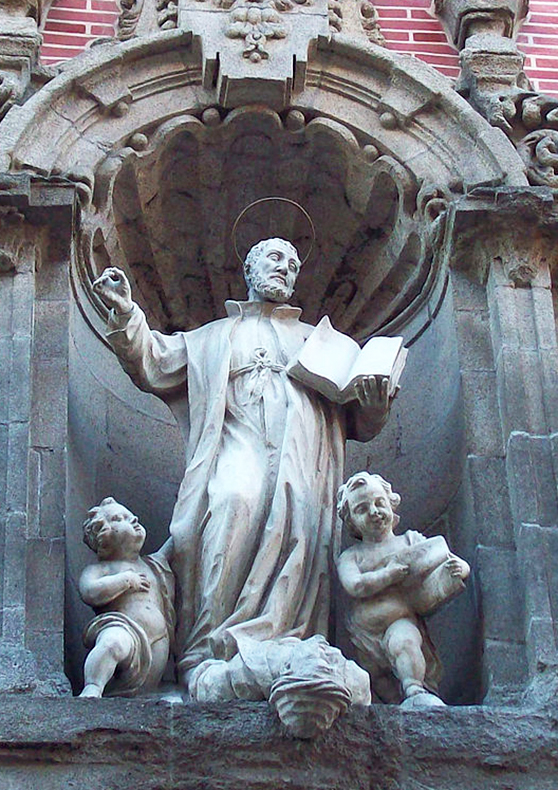San Gaetano, Saint of the day for 7 August

(1 October 1480 - 7 August 1547)
The story of San Gaetano
Like most of us, Gaetano seemed directed towards a "normal" life: first as a lawyer, then as a priest engaged in the work of the Roman Curia.
His life took a distinctive turn when he joined the Oratory of Divine Love in Rome, a group dedicated to piety and charity, shortly after his ordination at the age of 36. At 42 he founded a hospital for the incurable in Venice. In Vicenza he became part of a "disreputable" religious community that consisted only of men of the lowest conditions in life - and was harshly censored by his friends, who thought his action was a reflection on his family. He sought out the sick and the poor in the city and served them.
The greatest need of the time was the reform of a Church that was "sick with head and members". Gaetano and three friends decided that the best way to reform was to revive the spirit and zeal of the clergy. Together they founded a congregation known as the Theatines - from Teate [Chieti] where their first superior bishop had his see. One of the friends later became Pope Paul IV.
They managed to escape to Venice after their home in Rome was destroyed when the troops of Emperor Charles V sacked Rome in 1527. The Theatines were exceptional among the Catholic reform movements that took shape before the Protestant Reformation. Gaetano founded a monte de pieta - “mountain or fund of piety” - in Naples, one of the many non-profit credit organizations that lent money for the safety of committed objects. The aim was to help the poor and protect them from usurers. Cajetan's small organization ultimately became the Bank of Naples, with major changes in politics.
Reflection
Had Vatican II been summarily terminated after its first session in 1962, many Catholics would have felt that a great blow had been dealt to the growth of the Church. Cajetan had the same sentiment about the Council of Trent, which was held from 1545 to 1563. But as he said, God is the same in Naples as in Venice, with or without Trent or Vatican II. We open up to the power of God in whatever circumstances we find ourselves, and God's will is done. God's standards of success differ from ours.